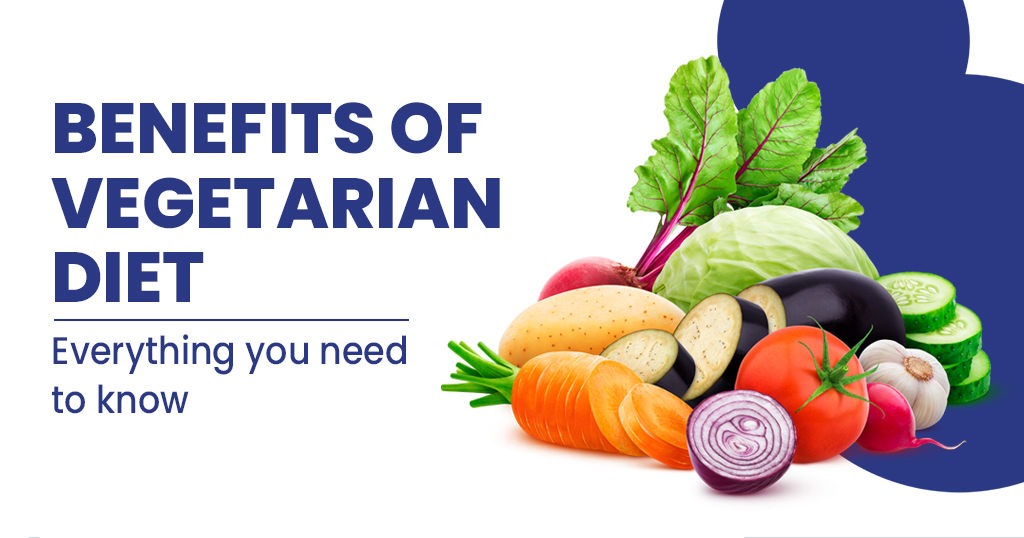Benefits of Vegetarianism
Vegetarianism is a dietary choice that excludes the consumption of meat, poultry, and fish. Many individuals adopt a vegetarian lifestyle for various reasons, including ethical, environmental, and health concerns. In this article, we will explore the numerous benefits of vegetarianism and how it can positively impact your life.
Improved Nutritional Intake
By following a well-balanced vegetarian diet, individuals can ensure an increased intake of essential nutrients. Fruits, vegetables, legumes, whole grains, and nuts are rich in vitamins, minerals, and antioxidants that support overall health. A vegetarian diet can provide an abundance of fiber, which aids in digestion and helps maintain a healthy weight.
Reduced Risk of Chronic Diseases
Research suggests that vegetarianism can lower the risk of developing chronic diseases such as heart disease, certain types of cancer, and diabetes. Plant-based diets tend to be lower in saturated fats and cholesterol while being higher in beneficial nutrients. This can contribute to better heart health, improved blood sugar control, and a reduced risk of obesity.
Environmental Sustainability
Choosing a vegetarian lifestyle can have a positive impact on the environment. Livestock farming is a major contributor to greenhouse gas emissions, deforestation, and water pollution. By reducing the demand for meat, individuals can help mitigate climate change, preserve natural resources, and promote sustainable agricultural practices.
Weight Management
Vegetarian diets, when properly planned, can be effective for weight management. Plant-based foods are generally lower in calories and saturated fats compared to animal products. Additionally, the high fiber content in vegetarian diets promotes feelings of fullness, reducing the likelihood of overeating. Regular consumption of fruits, vegetables, and whole grains can contribute to maintaining a healthy weight.
Improved Digestive Health
Vegetarian diets, particularly those rich in fiber, can help improve digestive health. Fiber aids in regular bowel movements prevents constipation, and promotes a healthy gut microbiome. By incorporating a variety of plant-based foods, individuals can support a well-functioning digestive system and reduce the risk of gastrointestinal disorders.

In conclusion, adopting a vegetarian lifestyle can offer a multitude of benefits for individuals and the planet. Improved nutritional intake, reduced risk of chronic diseases, environmental sustainability, weight management, and improved digestive health are just a few of the advantages associated with vegetarianism. By making conscious choices about our diet, we can positively impact our well-being and contribute to a more sustainable future.
Frequently Asked Questions about the Benefits of Vegetarianism
1. What are the main health benefits of a vegetarian diet?
Switching to a vegetarian diet can help lower the risk of heart disease, high blood pressure, obesity, type 2 diabetes, and certain types of cancer.
2. Can a vegetarian diet provide all the necessary nutrients?
A well-planned vegetarian diet can provide all the essential nutrients your body needs, including protein, iron, calcium, and vitamins like B12 and D.
3. Does a vegetarian diet help with weight loss?
Yes, a vegetarian diet can be effective for weight loss as it tends to be lower in calories and saturated fats while being rich in fiber and plant-based proteins that promote satiety.
4. Are there environmental benefits to being vegetarian?
A vegetarian diet has a lower carbon footprint compared to a meat-based diet, as it requires fewer resources like water, land, and energy, and reduces greenhouse gas emissions.
5. Can a vegetarian diet improve digestion?
Yes, a vegetarian diet, especially one rich in fiber from fruits, vegetables, and whole grains, can promote healthy digestion, prevent constipation, and improve gut health.
6. Is a vegetarian diet suitable for athletes and active individuals?
A well-planned vegetarian diet can provide all the necessary nutrients for athletes and active individuals, including sufficient protein for muscle repair and recovery.
7. Does a vegetarian diet help reduce the risk of certain diseases?
Yes, studies have shown that a vegetarian diet can help reduce the risk of chronic diseases such as heart disease, certain cancers, and hypertension.
8. Can a vegetarian diet improve overall energy levels?
Yes, a balanced vegetarian diet that includes a variety of plant-based foods can provide the necessary nutrients for sustained energy levels throughout the day.
9. Are there any mental health benefits associated with a vegetarian diet?
While more research is needed, some studies suggest that a vegetarian diet may have positive effects on mental health, including reducing the risk of depression and anxiety.
10. Can a vegetarian diet contribute to a longer lifespan?
Several studies have indicated that following a vegetarian diet may be associated with a longer lifespan, potentially due to its positive impact on reducing the risk of chronic diseases.




